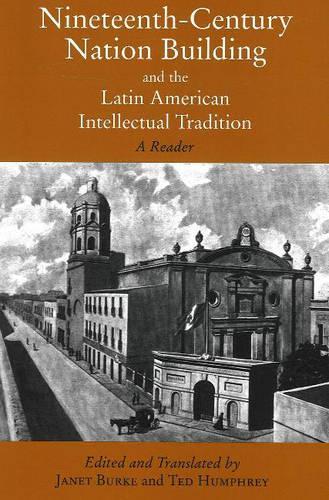
Nineteenth-Century Nation Building and the Latin American Intellectual Tradition: A Reader
(Paperback)
Available Formats
Publishing Details
Nineteenth-Century Nation Building and the Latin American Intellectual Tradition: A Reader
By (Author) Janet Burke
Edited by Ted Humphrey
Hackett Publishing Co, Inc
Hackett Publishing Co, Inc
28th February 2007
United States
Classifications
Tertiary Education
Non Fiction
History of ideas
980.031
Physical Properties
Paperback
384
Width 153mm, Height 229mm
511g
Description
This volume provides readings from the works of eighteen Latin American thinkers of the nineteenth century who were engaged in articulating and examining the problems that Spanish and Portuguese America faced in the one hundred years after securing independence. The selections represent all major regions of Latin America. Although these regions differ significantly with regard to indigenous background, geography, climate, and available resources, their people confronted the common problems that surround the intractable challenges of statecraft and nation building: issues of race, international relations, economics, education, and self-understanding.
Reviews
A very good selection of primary sources, essential for undergraduates to understand nineteenth-century Latin America.--Erick D. Langer, Department of History/School of Foreign Service, Georgetown University
This will be a splendid and useful book for teachers of courses focusing on the nineteenth century who have been frustrated at the lack of accessible sources in English. . . . the selection of texts is as near to impeccable as possible in trying to capture Latin American thinking between Bolvar in 1819 and Arguedas in 1909. . . . this is a worthy collection of primary sources, and it will certainly be of use in bringing neglected texts and authors to the audience of students who have no Spanish.--Matthew Brown, University of Bristol
Author Bio
Janet Burke is Associate Dean in Barrett, the Honors College, and Lincoln Fellow for Ethics and Latin American Intellectual History in the Lincoln Center for Ethics, at Arizona State University. Ted Humphrey is Presidents Professor, Barrett Professor, and Lincoln Professor of Ethics and Latin American Intellectual History at Arizona State University.
